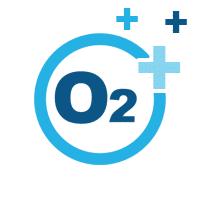Brain Damage
Brain damage is an injury that causes the deterioration or destruction of brain cells. Brain damage includes both Traumatic Brain Injury (TBI), caused by an external force, and Acquired Brain Injury (ABI), occurring at the cellular level. The severity of damage can vary based on they type of injury, but can range from headaches, confusion, and memory problems, to more severe cognitive, behavioral, and physical disabilities.
Benefits of Hyperbaric Oxygen Therapy for Brain Damage:

Increases Amount of Oxygen in the Blood
Stimulates development of new blood vessels from pre-existing vessels as well as the natural development of new blood vessels.

Reduces Inflammation & Swelling
Suppresses the cellular activity of the immune system which triggers swelling when an injury or damage to the body occurs. While this reaction is meant to start healing and protect from injury it can result in secondary injury, pain, and prolonged recovery time.

Preserves, Repairs, & Enhances Cellular Functions
Boosts cellular metabolism, promotes rapid cell reproduction, and enhances collagen synthesis. Collagen is a protein in connective tissues like skin.
Key Research on Hyperbaric Oxygen Therapy for Brain Damage
Recent News on Hyperbaric Oxygen Therapy for Brain Damage
Essentia Health to study impact of hyperbaric oxygen on post-concussion adults
Essentia Health-Fargo will launch the “hyperbaric oxygen for post-concussion” study to examine the impact of hyperbaric oxygen on adults who have persistent symptoms from concussion. This study will be led by Dr. Olayinka Ajayi, a hyperbaric medicine physician; Dr....
Maroon wins Arthur C. Rettig Award
Image Credits @drjosephmaroon Steelers' neurosurgeon Joseph C. Maroon, MD, was awarded the Arthur C. Rettig Award for Academic Excellence by NFL Physicians Society (NFLPS). Dr. Maroon was presented the award at the NFLPS scientific meeting during the 2022 NFL...
North Carolina launches plan to use new “lifesaving” oxygen therapy to treat veterans for PTSD
By Keenan Willard, WRAL eastern North Carolina reporter North Carolina is one of the first states in the country to start using a new oxygen treatment to help veterans overcome Post Traumatic Stress Disorder. Hyperbaric oxygen therapy is being called a "lifesaver"...
Related Indications
Schedule a Consultation
Additional Research
Hyperbaric oxygen promotes neural stem cell proliferation by activating vascular endothelial growth factor/extracellular signal-regulated kinase signaling after traumatic brain injury.
Hyperbaric oxygen (HBO) therapy and neural stem cell (NSC) transplantation can improve traumatic brain injury (TBI) clinically. This study aimed to investigate the mechanism of HBO promoting NSC proliferation and neurological recovery after TBI. Twenty-four Sprague-Dawley rats were divided randomly into three groups: a sham group, a TBI group (constructed using Feeney’s free-fall method), and an HBO-treated TBI group. Neurological function was evaluated by Neurological Severity Scores on days 1, 3, and 7, and we found that TBI-induced poor neurological function was improved by HBO. On day 7 after TBI, we observed that TBI promoted NSC proliferation, migration to the lesion area, and the levels of vascular endothelial growth factor (VEGF), VEGFR2, Raf-1, MEK1/2, and phospho-extracellular signal-regulated kinase (ERK) 1/2 protein, which were further boosted by HBO, from immunohistochemistry, immunofluorescence, and Western blot experiments. In vitro, cell injury was applied to NSCs isolated from neonatal Sprague-Dawley rats by the Cell Injury Controller II system. Moreover, data from the BrdU Kit and Western blot showed that in-vitro HBO significantly accelerated NSC proliferation and the levels of proteins related to cell cycle and the VEGF/ERK pathway after cell injury, which was suppressed by the VEGFR2 inhibitor. Taken together, this study indicated that HBO may promote NSC proliferation by activating VEGF/ERK signaling and play a crucial role in neuroprotection after TBI.
Functional Medicine Approach to Traumatic Brain Injury.
Background: The U.S. military has seen dramatic increases in traumatic brain injuries (TBIs) among military personnel due to the nature of modern-day conflicts. Conventional TBI treatment for secondary brain injuries has suboptimal success rates, and patients, families, and healthcare professionals are increasingly turning to alternative medicine treatments. Objective: Effective treatments for the secondary injury cascades that occur after an initial brain trauma are unclear at this time. The goal of successful treatment options for secondary TBI injuries is to reduce oxidative stress, excitotoxicity, and inflammation while supporting mitochondrial functions and repair of membranes, synapses, and axons.
Author response: Hyperbaric oxygen: B-Level evidence in mild traumatic brain injury clinical trials.
Abstract: Figueroa, Wright, (2017). Author response: Hyperbaric oxygen: B-Level evidence in mild traumatic brain injury clinical trials. Neurology, 2017 Aug;89(7):750-751. https://www.ncbi.nlm.nih.gov/pubmed/28808167
